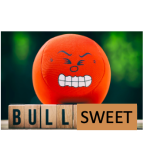Crappy studies on the alleged harm of artificial sweeteners are about as common (and valuable) as a wad of gum stuck under a school chair. Yet, here's another claiming that consumption of artificial sweeteners, especially aspartame and acesulfame-K, are associated with cancer. Shall we dismantle it? I say yes.
data dredging
Is being overweight in childhood linked to mom's prenatal caffeine intake? If it is, it's not terribly well supported by this new study published in BMJ.
We ve written before on scientific fraud and the problem of how easy it is to get papers with fake or manipulated data published. These studies that somehow make it through the publishing process can range from relatively harmless, such as the deliberately faked chocolate is good for weight loss study,
Why are there so many scary stories about common foods and products causing cancer? An excellent blog-essay explains quite a lot about how science (or science-y) journalism works. It may confuse or scare you, but not as much as the so-called research does.

